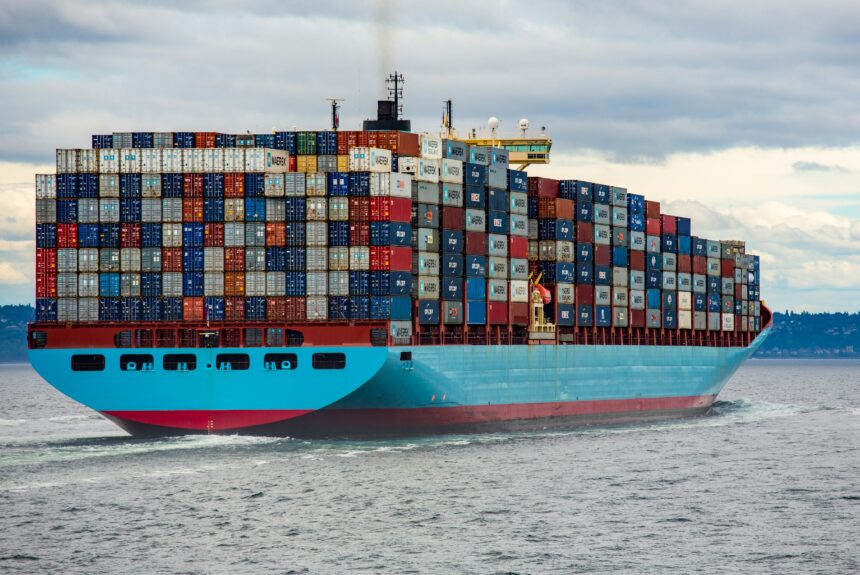This article originally appeared in National Review.
When we think about the major innovations to emerge recently, Apple’s Vision Pro and ChatGPT may be what first comes to mind. Dredging, the process of cleaning out a river or harbor, is probably far down the list, if it makes our list at all. Dredging companies around the world have made dramatic improvements in efficiency. To the detriment of taxpayers, consumers, and the environment, America can’t use any of the innovations, thanks to the Foreign Dredge Act.
>>>READ: Relieving Traffic Congestion is Good for Drivers, Consumers, and the Planet
More than a century old, the law prohibits any foreign-built or chartered ships from dredging off America’s coasts and shipping channels. As a result, top-of-the-line dredgers that could deepen and widen U.S. ports at a fraction of the cost and time, and with less environmental impact, cannot bid on contracts.
These are not dredgers from adversarial nations like China or Russia, but from allied countries in Europe. In fact, 31 of the world’s largest free-market dredgers are either Dutch or Belgian. The largest U.S.-built dredger will be in operation later this year but has only a quarter of the capacity of the largest Belgian dredgers. Even so, major European dredging companies have fleets that are triple or quadruple the size of the U.S. fleet, and many individual companies have double the combined capacity of U.S. dredgers.
When adjusted for inflation, the cost of dredging a cubic yard of material has increased more than 200 percent, from $1.74 in 1970 to $5.77 in 2018. For the 400 ports and 25,000 miles of navigation channels that the Army Corps of Engineers is responsible for, those increased costs are significant. Introducing competition for dredging services would have helped lower the costs borne by taxpayers for port maintenance and modernization. In one instance in Savannah, Ga., a dredging project that a European firm could do for $400 million cost taxpayers over $1 billion (up from an initial $700 million winning bid for the project).
Deeper and wider shipping channels would benefit Americans and businesses by dramatically improving supply chains. At too many American ports, cargo ships have to “light-load” and offload some of their cargo at a different port before it can reach its final destination, usually via truck or rail. Even with light loading, the lack of depth and width can prevent some larger ships from even moving through a shipping lane.
Accommodating larger ships means that ports could import and export millions of dollars’ worth of additional cargo. That helps to bring prices down for Americans who continue to struggle with elevated price levels. More robust ports also expand opportunities for American businesses across the country — everyone from farmers in Kansas to autoworkers in Michigan. Increased trade would spur more economic growth at ports and generate more revenue for port maintenance.
>>>READ: For a Cleaner, More Competitive Economy, Repeal the Jones Act
More competition would also benefit American shipbuilders that construct dredgers, by forcing them to innovate and be cost-competitive in the international marketplace, 90 percent of which is dominated by European companies. Furthermore, U.S. shipyards would benefit from more repair and maintenance work.
Repealing the Foreign Dredge Act would also create several environmental benefits. Reducing congestion and light-loading would not only save time and money but also reduce pollution. Newer dredgers use precision technology that minimizes environmental impacts while others run on cleaner burning fuel, including liquefied natural gas. With deeper ports, more goods would be transported through shipping, which is more environmentally friendly than trucking and can alleviate congestion on the highways. Further, dredging is an effective tool to protect against coastal erosion and for land reclamation, and sound environmental dredging helps to reduce the spread of unwanted contaminants and thereby protects marine life.
Last December, Senator Mike Lee (R., Utah) introduced four bills that would allow qualified dredgers from friendly nations to operate in U.S. waters, improve permitting processes for port modernization, and allow for purchase of ally-built dredge vessels so long as they are crewed by Americans and fly the U.S. flag. Such measures would not only protect American jobs but significantly expand them, by boosting productivity and economic growth. Fixing bottlenecks and delays at ports could help move hundreds of billions of dollars’ worth of goods.
A thriving, open port economy is vital for the overall economic well-being of a nation. The Foreign Dredge Act jeopardizes the economic vitality of American ports by stifling competition. As Senator Lee emphasized, “It’s time we update outdated laws that hinder our progress and adopt measures that reflect the current needs of international trade and commerce.” Ending dredging protectionism would put American taxpayers and consumers first.
The views and opinions expressed are those of the author’s and do not necessarily reflect the official policy or position of C3.
